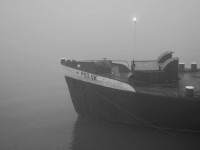Approaching justice, peacebuilding and enlargement of the European Union

We wish to join the citizens of Vukovar in celebrating Vukovar Day. Along with greetings, we also wish to broach issues of trust building, important to everyone in Croatia and abroad. Crimes in Vukovar are one of the most painful points of suffering in the Homeland War. Today, Vukovar is a site of unfinished peace, of lagging economy, of remembrance, of special reverence, but also of smashed signs bearing Cyrillic script, fragile inter-ethnic relations, economic depression and emigration.
The peaceful reintegration process brought Eastern Slavonia, Baranja and Eastern Syrmia back into the Croatian constitutional and legal order. The peaceful reintegration agreement was confirmed on 23 November 1995 by the UN Security Council (Resolution 1023), while Resolution 1037 of 15 January 1996 established the special UN Transitional Authority in Eastern Slavonia, UNTAES. The mission was successfully completed on 15 January 1998, and is considered the United Nations' most successful peacekeeping operation.
As the country presiding over the Council of the EU in the first half of 2020, Croatia has a unique chance to open up a discussion on whether we have forgotten that building and maintaining stable, positive and sustainable peace is one of the basic roles of the EU, reminding us that an increasingly strong Union also means pooling our resources to keep and reinforce peace.
For this reason, civil society organisations have decided to mark the 22nd anniversary of the peaceful reintegration in Vukovar, with an expert panel discussion under the title, "The EU as a Forgotten Peace Project? Towards a Comprehensive EU Peacebuilding Policy". We published the recommendations that came out of the gathering, and forwarded them to Croatian institutions. There has been no official reaction, but this did not discourage all those who have worked for years developing dialogue in the European House Vukovar, the museums and the library, as well as on social networks, following the example of Ljiljana Gehrecke. The recommendations are available to all who are interested in the perspectives of creating sustainable peace:
Policy paper, Croatian: https://tinyurl.com/y95l3lw5
Policy paper, English: https://tinyurl.com/ycy6sxtk
In your opinion, what is needed to build peace?



